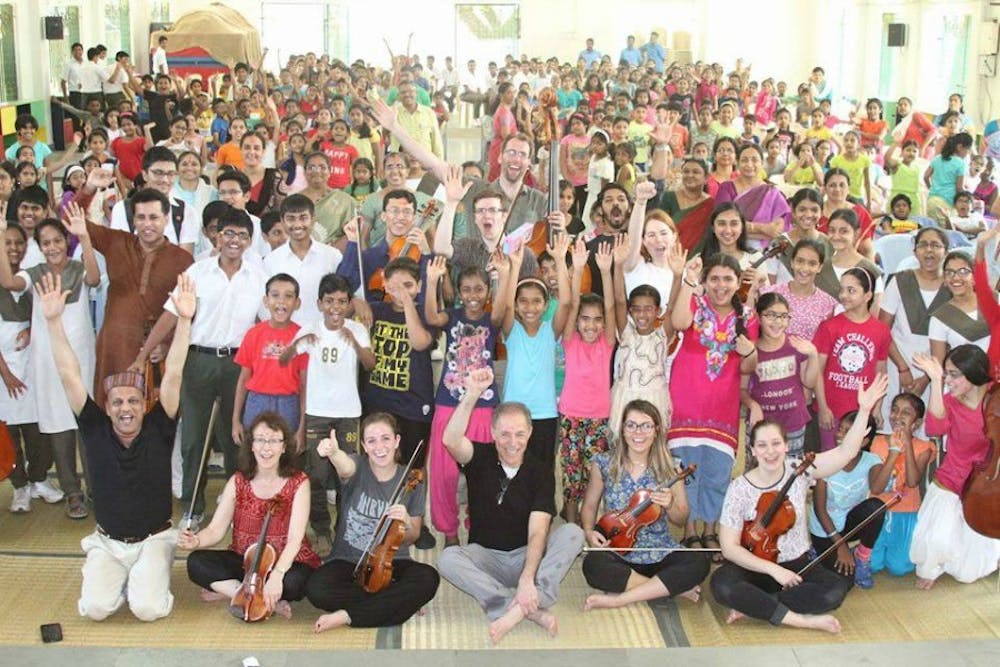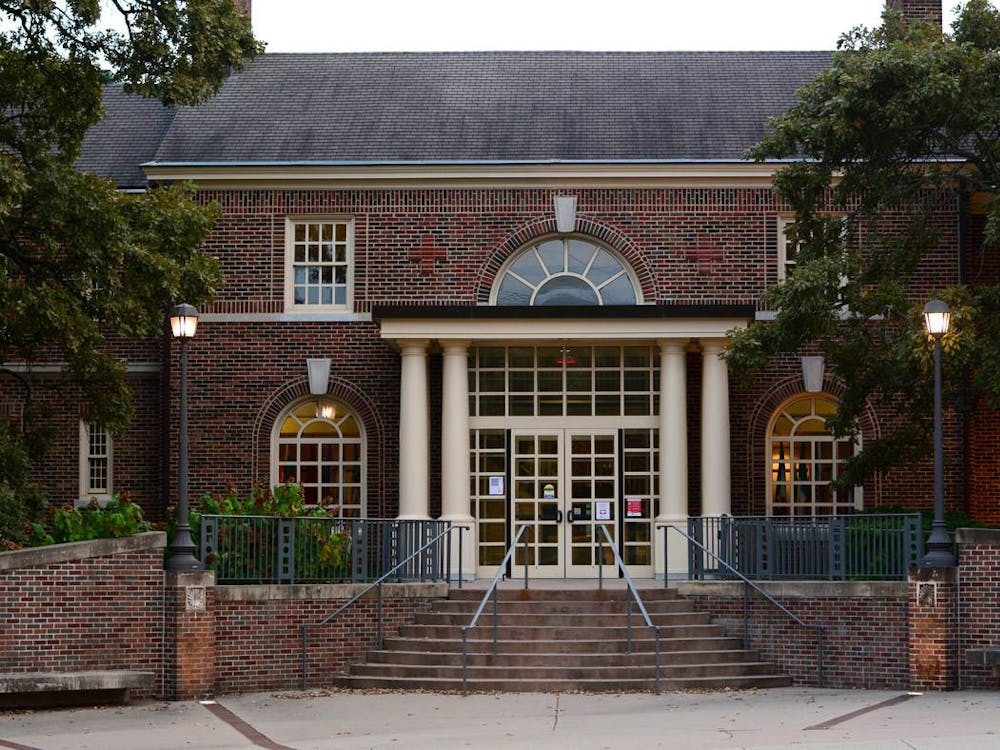By Riley Steiner, For The Miami Student
Over spring break, eight Miami University students traveled to India to perform as part of the Global Rhythms Orchestra.
They spent nine days in Chennai and Pondicherry, performing music, visiting historic sites and collaborating with esteemed musicians.
The trip was led by Srinivas Krishnan, who teaches a sprint course and organizes the Global Rhythms performances at Miami each fall. In the spring, Krishnan lives in Chennai.
The first day the students arrived in India, they rehearsed with the Sunshine Orchestra, helmed by A.R. Rahman, a two-time Academy Award-winning Indian artist who created the Orchestra to teach music to underprivileged young people.
Miami's students had only one day to rehearse with the Sunshine Orchestra before their first performance. The open-air venue was an hour outside of Chennai, and the day was a sweltering 95 degrees.
The stage was draped with lilies and marigolds. The auditorium was filled with incense sticks. Before the performance began, the members of the orchestra-dressed in vibrantly colored traditional saris and sarongs-lit oil lamps that lined the front of the stage.
"We lit the oil lamps to show solidarity, to show that we are all one," said Krishnan. "I wanted the venue to be very rooted in culture."
Every seat in the venue was filled. People who didn't have seats stood, packed side-by-side, to watch the performance. The audience members represented a vast range of people-scholars and scientists, entrepreneurs and engineers, filmmakers and families. From grandmothers to four-year-olds, all ages were in attendance.
The goal of the Global Rhythms performance was to showcase classical Western music, a genre that was completely new to the audience. Along with traditional Indian music, the ensemble-made up of the Miami students, the Sunshine Orchestra and guest Indian artists-played pieces by composers like Purcell and Rachmaninoff.
"It was completely different for India," said junior Chandni Chandiramani, who plays the viola. "Nothing had ever been done like this."
The audience was spellbound. After the performance, Chandiramani said, they crowded the stage for photographs with the musicians.
Enjoy what you're reading?
Signup for our newsletter
"Music is a universal language that can be appreciated by everybody, everywhere," Krishnan said. "I wanted to expand the definition of music for people here [in India]."
The group also visited a grade school in Chennai, where they were welcomed by the entire staff and student body. The orchestra performed at the school, with Ricardo Averbach, the Miami orchestra's conductor, teaching the young students how to conduct.
"Five kids walked onto the stage, and they started conducting the Miami students," said Krishnan. "That's when we knew we were doing something right."
"It was really cool because they had never heard Western classical music before," said senior cellist Marla Gigliotti. "They didn't even know what a cello was. They were really excited, and it piqued their curiosity."
Along with performing, the group had a recording session in A.R. Rahman's studio, visited a fine arts college and had a personal class with a classical Indian violinist, where they learned how to play one of his original compositions.
But despite the full itinerary, the students did not know much about what they were going to be doing outside of performing.
"Srini had everything planned out, but we didn't know that he had everything planned out," Chandiramani said. "He did that on purpose, because he said we have to let go of our culture and be pushed out of our comfort zone. The culture in India is just so full of spontaneity, and we got to experience that directly. It was crazy for us, especially as musicians, because so much of what we do is precision. But I think that's what made the experience so special. It was completely life-changing."
The group visited cathedrals, a monastery and a philosopher's house. They went to libraries and met with a monk. And they visited the Theosophical Society of India, a center of meditation, spirituality and philosophy which is also home to one of the largest banyan trees in the world.
Chandiramani said, for her, the trip was a powerful spiritual journey.
"Walking around Miami, I'm a different person now," Chandiramani said. "We went there to share our culture, but in turn we got a lot of that culture as well."
"We got to see everything from poverty to the richest of the rich there," said Gigliotti. "So it made me very aware of how diverse the world actually is."
Krishnan wants to continue this trip every year.
"Look at what it does for our students," he said. "I think it was a very good wake-up call for our team. They began to believe that there is another world where they can do something. I think this is what music is all about. It allows our students to find another dimension of who they are. They discovered a new side of themselves. They had no idea they were so good.
"I will do it again and again," said Krishnan. "I will do everything to sustain a project like this, to bring Miami to faraway worlds. We broke every boundary, we broke every wall. It was such a fantastic way of launching Global Rhythms in India. These things happen incrementally, and we have started it, that's for sure."




